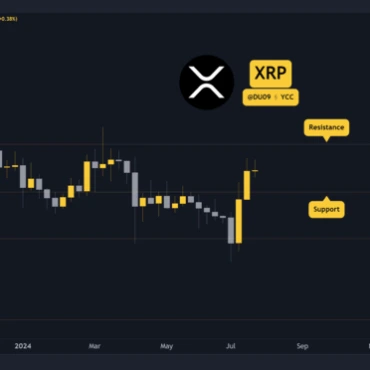The price of Bitcoin has more than doubled this year, as US President-Elect Donald Trump is expected to be more crypto-friendly than his predecessor, Joe Biden. With the surge in the price of Cryptocurrency, there has also been a rise in the incidence of cybercriminal activity, more common and elaborate than before.
A total of $2.2bn (£1.76bn) in cryptocurrencies has been stolen this year, with North Korean hackers accounting for more than half that figure, according to a new study.
Hacks by North Korea accounted for more than half the $2.2bn total of all cryptocurrency hacks, according to new figures from blockchain analysis firm Chainalysis.
Rise in Crypto cybercrimes
Overall, the amount of cryptocurrency stolen by hackers in 2024 increased by 21% from last year but it was still below the levels recorded in 2021 and 2022, the report said.
It said the majority of crypto stolen this year was due to compromised private keys – which are used to control access to users’ assets on crypto platforms.
Some of the most significant incidents this year included the theft of the equivalent of $300m in bitcoin from the Japanese cryptocurrency exchange, DMM Bitcoin, and the loss of nearly $235m from WazirX, an India-based crypto exchange.
Wazirx Under Siege: Delisting, and Legal Battles
The troubled Indian cryptocurrency trading platform WazirX is in the crosshairs now. The case stemmed from a $235 million hack this year, and the Delhi High Court has demanded a reinvestigation.
Making the situation worse, Binance has delisted the WRX token, with the token seeing its value decrease by an astonishing 51%. With trust deteriorating, WazirX is staring at contingency measures that include a possible shift to the DEX model.
Flashloan Exploit Targets Slurpycoin
The latest blockchain affected by the exploitable flash loan vulnerability was a Binance Smart Chain coin, Slurpycoin that lost $3000. The attacker utilizing the buyback mechanism has engaged with arbitrage strategies to reveal issues with DeFi tokenomics.
North Korea’s Crypto-Laundering Operation Revealed
The country uses the funds obtained by its army of highly trained hackers to fund its ballistic missile and nuclear programme, according to officials.
The US has estimated that as much as one-third of North Korea’s missile programme is funded by hacking activity.
Historically, North Korea has done so through a variety of techniques, including evasive shipping tactics, overseas workers and the use of shell companies. Stealing cryptocurrency has become another mechanism in their toolkit to fund the regime.
The hacks include a theft of 4,500 Bitcoin worth $305m from Japanese crypto exchange DMM Bitcoin in May.
Chainalysis tracked the stolen funds through intermediaries until they finally arrived at a Cambodian exchange linked to a conglomerate called Huione Group that it said has previously been linked to facilitating cybercrime.
Fallout From the LastPass Breach: Millions Lost Again
As a consequence of the LastPass backup data breach, the hackers used the stolen vault data to hack more than forty wallets and made off with $5.36 million. This piles on another over $200 million in losses related to the breach, putting in perspective the dangers of data retention on the web.
Other Noteworthy Attacks include the Compromised X account of zkPass Protocol by attackers, users were exposed to these phishing scams, Also BTC24H (Polygon): Contract-related vulnerabilities cut down $85,700 from the contract.
The rise in stolen crypto in 2024 underscores the need for the industry to address an increasingly complex and evolving threat landscape.







